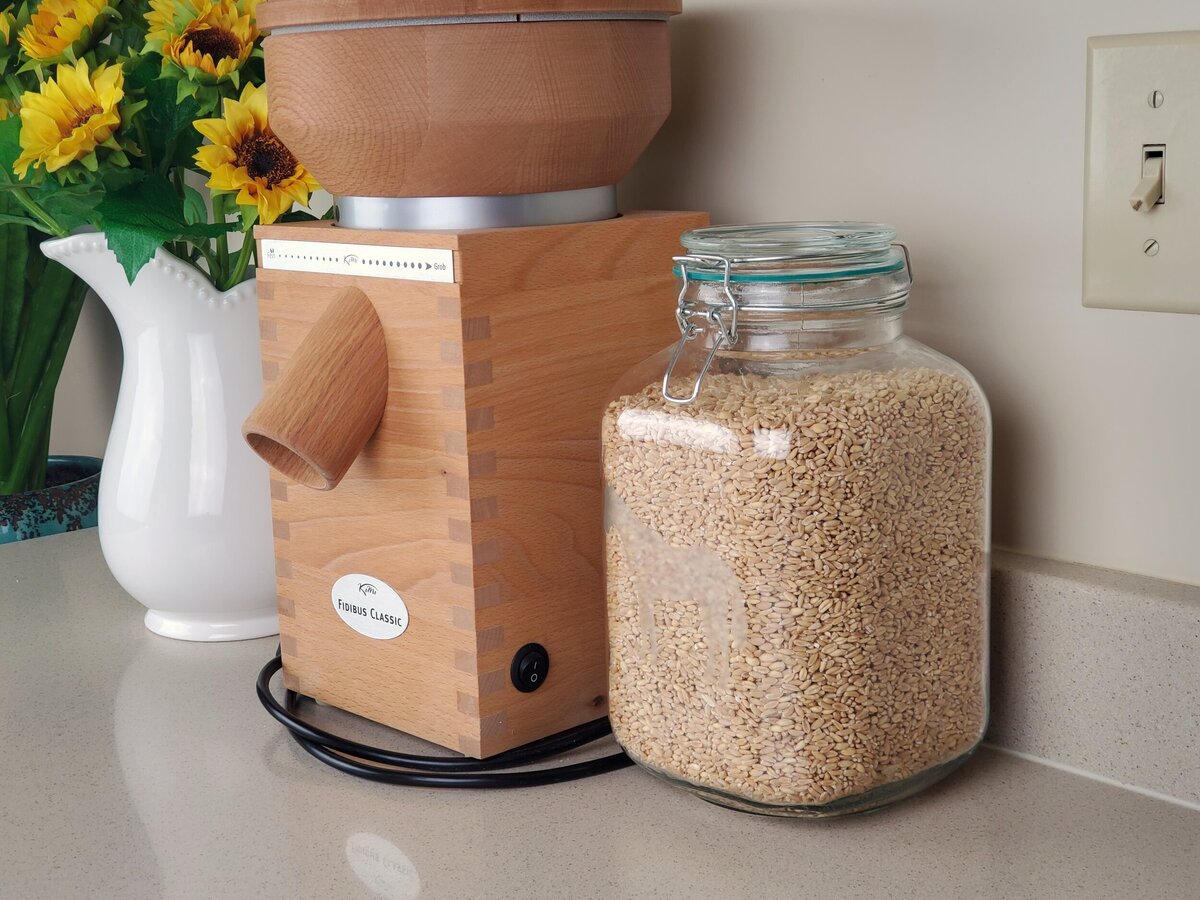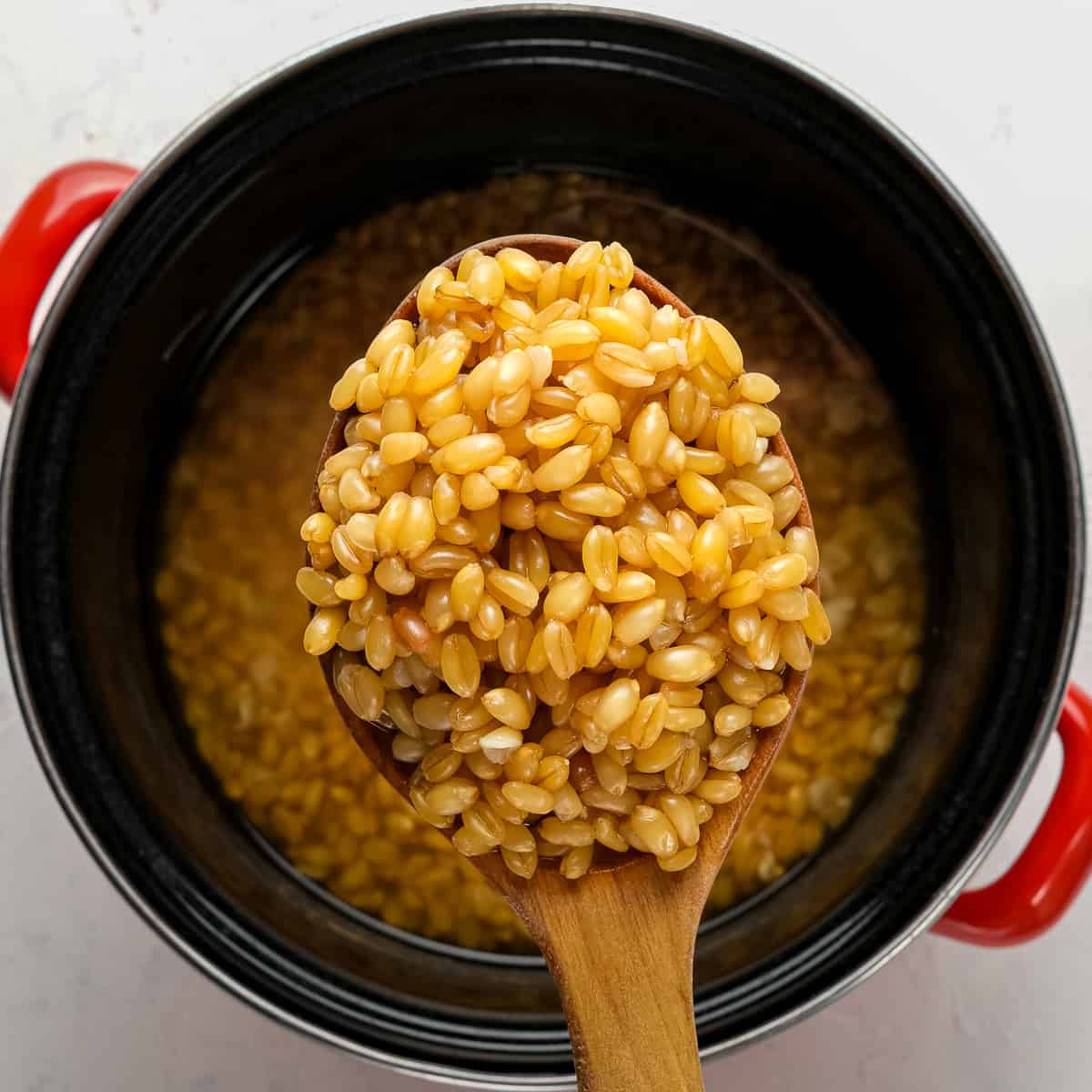

Articles
How To Store Goji Berries
Modified: October 21, 2024
Looking for tips on how to store goji berries? Check out our informative articles for expert advice and guidance on preserving the freshness and nutritional value of these superfood berries.
(Many of the links in this article redirect to a specific reviewed product. Your purchase of these products through affiliate links helps to generate commission for Storables.com, at no extra cost. Learn more)
Introduction
Goji berries, also known as wolfberries, have gained popularity in recent years due to their numerous health benefits and their delicious taste. These small, bright red berries are native to Asia and have been used in traditional Chinese medicine for centuries. They are rich in antioxidants, vitamins, and minerals, making them a nutritious addition to your diet.
In addition to their health benefits, goji berries are also versatile when it comes to storage. Whether you want to store them for a short period of time or for an extended period, there are various methods that can help retain their freshness and quality. This article will guide you on how to effectively store goji berries to ensure their longevity and taste.
Before we dive into the different storage methods, let’s explore some of the incredible benefits of goji berries that make them worth storing.
Key Takeaways:
- Store goji berries in the refrigerator for up to two weeks or freeze them for long-term storage of up to six months to maintain their freshness and nutritional value.
- Consider alternative storage methods such as dehydration, vacuum sealing, canning, or making preserves to enjoy goji berries throughout the year.
Read more: How To Grow Goji Berries From Seed
Benefits of Goji Berries
Goji berries are often touted as a superfood due to their impressive nutritional profile. Here are some of the key benefits of incorporating goji berries into your diet:
- Rich in antioxidants: Goji berries are packed with antioxidants that help fight against free radicals in the body. Free radicals can cause oxidative stress, which has been linked to various chronic diseases and premature aging. The high antioxidant content in goji berries can help reduce inflammation and protect cells from damage.
- Boosts immune system: Goji berries are known for their immune-boosting properties. They contain high levels of vitamin C, which plays a crucial role in supporting a healthy immune system. Consuming goji berries regularly can help strengthen your immune response and protect against common illnesses.
- Supports eye health: Goji berries are a rich source of zeaxanthin and lutein, two antioxidants that are essential for maintaining good eye health. These antioxidants help protect the eyes from harmful UV rays and oxidative damage, reducing the risk of age-related macular degeneration and other eye conditions.
- Enhances energy and mood: Goji berries are known for their ability to increase energy levels and improve mood. They are packed with essential nutrients, including vitamins B1, B2, and B6, which play a vital role in energy production and brain function. Consuming goji berries can provide a natural boost of energy and enhance overall well-being.
- Aids in weight management: Goji berries are low in calories and high in fiber, making them a great addition to a weight loss or weight management plan. The fiber content helps keep you feeling full for longer, reducing cravings and promoting healthy digestion.
These are just a few of the many benefits of goji berries. Including them in your diet can have a positive impact on your overall health and well-being. Now that we know why goji berries are beneficial, let’s explore the different types of goji berries available.
Types of Goji Berries
When it comes to goji berries, there are primarily two main types: the traditional Chinese goji berries (Lycium barbarum) and the Himalayan goji berries (Lycium chinense).
The traditional Chinese goji berries are known for their rich flavor and are often used in traditional Chinese medicine. They are typically deep red in color and have a slightly sweet and tangy taste. These berries are often sun-dried to preserve their nutrients and flavor.
Himalayan goji berries, on the other hand, are slightly smaller in size and have a sweeter taste compared to the Chinese variety. They are usually harvested in the Tibetan plateau region and are considered to be of higher quality.
Both types of goji berries are rich in antioxidants and offer similar health benefits. However, the choice between the two ultimately comes down to personal preference and availability. You can find both types of goji berries in health food stores, online retailers, or specialty food markets.
Now that we have explored the different types of goji berries, let’s move on to the important factors to consider when choosing fresh goji berries.
Choosing Fresh Goji Berries
When it comes to selecting fresh goji berries, there are a few key factors to keep in mind to ensure that you get the best quality berries. Here are some tips to help you choose fresh goji berries:
- Color and appearance: Look for goji berries that are vibrant red and plump in appearance. Avoid berries that appear dull, wrinkled, or discolored, as these may be signs of age or poor quality.
- Texture: Gently squeeze the goji berries to assess their texture. They should be soft and slightly juicy, but not mushy or overly dried out.
- Smell: Take a whiff of the goji berries. They should have a mild, sweet smell. Avoid berries that have a strong or unpleasant odor, as this could indicate spoilage or improper storage.
- Organic or pesticide-free: Whenever possible, opt for organic goji berries or those labeled as pesticide-free. This ensures that the berries have been grown without the use of harmful chemicals, making them a healthier choice.
- Reputation and source: Consider the reputation and source of the goji berries. Look for reputable brands or suppliers that prioritize quality and sustainability in their products.
By paying attention to these factors, you can ensure that you select fresh and high-quality goji berries. Once you have chosen your berries, it’s important to store them properly to maintain their freshness and nutritional value. In the next sections, we will explore different methods to store goji berries, whether in the refrigerator, freezer, or using alternative storage methods.
Storing Goji Berries
Proper storage is essential to keep goji berries fresh and maintain their nutritional value. Whether you have purchased a large quantity or want to store them for an extended period, there are various methods you can use to store goji berries effectively. Here are some recommended storage methods:
- Refrigerator: Storing goji berries in the refrigerator is a common method to extend their shelf life. Place the berries in an airtight container or a resealable bag. This helps protect them from moisture and prevents them from absorbing odors from other foods. Stored this way, goji berries can stay fresh for up to two weeks.
- Freezer: If you want to store goji berries for a longer period, freezing them is a great option. Start by spreading the berries in a single layer on a baking sheet lined with parchment paper. Place the baking sheet in the freezer for a few hours until the berries are firm. Once frozen, transfer the berries to an airtight container or a freezer bag properly labeled with the date. Frozen goji berries can maintain their quality for up to six months.
- Dehydration: Another method to store goji berries is by dehydrating them. You can use a food dehydrator or an oven set at a low temperature to remove moisture from the berries. Once dehydrated, store them in an airtight container in a cool, dark place. Dehydrated goji berries can last for several months.
- Vacuum sealing: Vacuum sealing is an effective method to extend the shelf life of goji berries. This method removes air from the packaging, minimizing the risk of spoilage. Use a vacuum sealer to package the goji berries in airtight bags before storing them in a cool, dry place.
- Canning: Canning goji berries is another option, especially if you have an abundant supply. Follow proper canning procedures to preserve the berries in their own juice or syrup. Canned goji berries can last for months if stored in a cool, dark place.
Choose the storage method that suits your preferences and needs. Regardless of the method you choose, make sure to label the packaging with the date to keep track of their freshness. Now that we have covered the various storage methods, let’s explore some additional tips for preserving goji berries effectively.
Store goji berries in an airtight container in a cool, dark place, such as a pantry or cupboard. This will help preserve their freshness and prevent them from spoiling.
Read more: How To Store Berries
Storing Goji Berries in the Refrigerator
The refrigerator is a convenient and effective way to store goji berries, allowing you to extend their freshness and maintain their nutritional value. Follow these steps to store goji berries in the refrigerator:
- Prepare the goji berries: Start by inspecting the goji berries for any signs of damage or spoilage. Discard any berries that appear moldy, mushy, or discolored. Rinse the remaining berries gently under cool running water to remove any dirt or debris.
- Dry the berries: After rinsing, gently pat the goji berries dry with a clean towel or paper towel. Excess moisture can promote spoilage, so ensure the berries are thoroughly dried before storing them.
- Choose a suitable container: Transfer the goji berries to an airtight container or a resealable bag. It is essential to choose a container that is just the right size to prevent excess air from entering.
- Store in the refrigerator: Place the container of goji berries in the refrigerator. Position them towards the back of the refrigerator, where the temperature is more consistently cool.
- Use within two weeks: Goji berries stored in the refrigerator can typically maintain their freshness for up to two weeks. It is best to consume them within this time frame for optimal taste and texture.
Remember that goji berries are sensitive to moisture and odors. To prevent absorption of odors from other foods in the refrigerator, ensure that the container or bag is tightly sealed. Additionally, avoid placing the goji berries near foods with strong odors, as this can compromise their taste.
Storing goji berries in the refrigerator is a simple and effective method to keep them fresh. However, if you prefer to store them for a longer period, freezing can be an excellent alternative. Let’s explore how to store goji berries in the freezer next.
Storing Goji Berries in the Freezer
If you want to store goji berries for an extended period, freezing them is an excellent option. Freezing helps preserve the freshness and nutritional value of the berries. Follow these steps to store goji berries in the freezer:
- Prep the goji berries: Start by washing the goji berries under cool running water to remove any dirt or debris. Pat them dry gently with a clean towel or paper towel.
- Spread the berries: Arrange the goji berries in a single layer on a baking sheet lined with parchment paper. This prevents the berries from sticking together during the freezing process.
- Pre-freeze the berries: Place the baking sheet with the goji berries in the freezer for a few hours until the berries are firm. This pre-freezing step helps prevent them from clumping together and enables you to portion them out later.
- Transfer to freezer-safe container: Once the goji berries are pre-frozen, transfer them to airtight containers or freezer bags. Make sure to label the containers with the date for reference.
- Remove excess air: Squeeze out any excess air from the freezer bags before sealing them. This prevents freezer burn and helps maintain the quality of the berries.
- Store in the freezer: Place the containers of goji berries in the freezer. Position them in a way that allows for easy access and prevents crushing or damage.
- Use within six months: Frozen goji berries can maintain their quality for up to six months. However, for the best taste and texture, it is recommended to use them within three to four months.
By properly freezing goji berries, you can enjoy their deliciousness and reap their nutritional benefits throughout the year. Freezing is a convenient method that allows you to store a larger quantity of berries for an extended period.
Now that we have covered storing goji berries in the freezer, let’s explore some additional methods for preserving these nutritious berries.
Other Storage Methods for Goji Berries
While storing goji berries in the refrigerator or freezer are the most common methods, there are a few other storage options to consider if you prefer not to use these methods. Here are some alternative storage methods for goji berries:
- Dehydration: Dehydrating goji berries is a popular method of preservation. You can use a food dehydrator or an oven set at a low temperature to remove moisture from the berries. Once dehydrated, store them in an airtight container in a cool, dry place. Dehydrated goji berries can last for several months.
- Vacuum sealing: Vacuum sealing is an effective method to remove air from the packaging, minimizing the risk of spoilage. Use a vacuum sealer to package the goji berries in airtight bags before storing them in a cool, dry place.
- Canning: Canning goji berries is another option, especially if you have a large supply of berries. Follow proper canning procedures to preserve the berries in their own juice or syrup. Canned goji berries can last for months if stored in a cool, dark place.
- Rehydration: If you have purchased dried goji berries, you can rehydrate them before use. Simply soak the berries in water or your preferred liquid for a few minutes until they plump up. Drain the excess liquid and use as desired.
- Preserves or jam: Another way to store goji berries is by making preserves or jam. Combine the berries with sugar and cook them down to create a sweet and flavorful spread. Store in sterilized jars and keep them in a cool, dark place.
These alternative storage methods can offer different ways to enjoy goji berries. Whether you prefer dehydrated goji berries, vacuum-sealed packages, canned berries, or preserves, choose the method that suits your preferences and allows you to enjoy the benefits of goji berries throughout the year.
Now that we have explored various storage methods, let’s move on to some helpful tips for preserving goji berries effectively.
Tips for Preserving Goji Berries
Preserving goji berries is essential to ensure their freshness, taste, and nutritional value. Here are some helpful tips to keep in mind when storing goji berries:
- Inspect for quality: Before storing goji berries, carefully inspect them for any signs of mold, mushiness, or discoloration. Remove any damaged berries to prevent them from affecting the rest of the batch.
- Wash before storing: Rinse the goji berries gently under cool running water to remove any dirt or debris. Pat them dry with a clean towel or paper towel before storage. Excess moisture can contribute to spoilage, so thorough drying is important.
- Use airtight containers: Whether you choose to store goji berries in the refrigerator, freezer, or using alternative methods, always use airtight containers or resealable bags for optimal freshness. This helps prevent moisture and air from reaching the berries, maintaining their quality for longer.
- Label and date: Properly label the storage containers or bags with the date of storage. This allows you to keep track of their freshness and ensures you use the oldest berries first.
- Avoid exposure to light: Goji berries are sensitive to light, which can degrade their quality and nutritional content. Store them in a cool, dark place to protect them from light exposure.
- Keep away from strong odors: Goji berries can absorb odors from other foods, compromising their taste. Avoid storing them near pungent or strong-smelling foods to maintain their delicious flavor.
- Rotate and use within recommended timeframes: Whether stored in the refrigerator, freezer, or through alternative methods, it’s important to use goji berries within the recommended timeframes. Fresh and frozen goji berries should be consumed within a few weeks or months, respectively, for the best taste and nutritional value.
- Consider portioning: If you plan to use goji berries in specific recipes or serving sizes, consider portioning them before storage. This will allow for easy access and prevent unnecessary thawing or exposure of the entire batch.
- Store in multiple locations: If you have a large supply of goji berries, consider storing them in multiple locations. This can help prevent loss or spoilage of the entire batch if one container or location is compromised.
By following these tips, you can maximize the shelf life and quality of goji berries, ensuring that you can enjoy their numerous health benefits and delicious taste for a longer period.
Now that you are equipped with the knowledge of preserving goji berries, you can confidently store them and have a stock of these nutritious berries ready to use whenever you desire. Remember to choose the storage method that suits your needs and preferences, and enjoy the benefits of goji berries all year round!
To summarize, whether you decide to store goji berries in the refrigerator, freezer, dehydrated, vacuum-sealed, canned, or in the form of preserves, the key is to keep them in a cool, dry place to maintain their freshness and nutritional value. With proper storage and handling, goji berries can provide you with a healthy and delicious addition to your meals and snacks.
Make the most of goji berries by incorporating them into your favorite recipes or enjoying them as a tasty and nutritious snack. By following the storage methods and tips mentioned in this article, you can ensure that your goji berries stay fresh and ready to be enjoyed whenever you desire.
Read more: How To Store Golden Berries
Conclusion
Goji berries are a powerhouse of nutrition and have become increasingly popular for their health benefits and unique flavor. By properly storing goji berries, you can enjoy their freshness and nutritional value for an extended period of time. Whether you choose to store them in the refrigerator, freezer, dehydrated, vacuum-sealed, canned, or as preserves, there are various methods that can help you preserve these nutritious berries effectively.
When storing goji berries, it is important to ensure that they are free from any signs of spoilage, such as mold or discoloration. Properly washing and drying the berries before storage can also help maintain their quality. Using airtight containers or bags will help protect the berries from moisture, odors, and air exposure.
The refrigerator is a convenient option for storing goji berries for up to two weeks, while the freezer allows for long-term storage for up to six months. Dehydration, vacuum sealing, canning, and making preserves are alternative methods that can also help preserve goji berries.
By following the tips provided in this article, such as labeling and dating the storage containers, avoiding exposure to light and strong odors, and using multiple storage locations, you can maximize the shelf life and quality of goji berries.
Incorporating goji berries into your daily diet can provide a variety of health benefits, including antioxidants, immune-boosting properties, eye health support, increased energy, and weight management support. Whether you add them to smoothies, cereals, salads, trail mixes, or enjoy them as a standalone snack, goji berries are a versatile and delicious addition to your meals.
By storing goji berries properly, you can have these nutrient-packed berries readily available, allowing you to enjoy their taste, nutritional benefits, and culinary versatility all year round.
So, start stocking up on goji berries and make use of the various storage methods shared in this article. With a little planning and proper storage, you’ll have a stash of goji berries that will contribute to your overall well-being and delight your taste buds whenever you desire.
Frequently Asked Questions about How To Store Goji Berries
Was this page helpful?
At Storables.com, we guarantee accurate and reliable information. Our content, validated by Expert Board Contributors, is crafted following stringent Editorial Policies. We're committed to providing you with well-researched, expert-backed insights for all your informational needs.














0 thoughts on “How To Store Goji Berries”